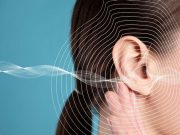Including Women in Their 40s in Breast Cancer Screening Programs Beneficial
Significantly higher 10-year net survival seen for women aged 40 to 49 years with screening programs that include women in their 40s
Two Distinct Patient Groups ID’d in Meniere Disease
Distinct disease etiologies manifesting with different radiological temporal bone abnormalities identified
Drug Overdose Death Risk Increased for Specific Health Care Workers
Significantly increased risk observed for social or behavioral health workers, registered nurses, health care support workers
AI-Supported Mammography Screen Reading Seems Promising
Cancer detection rate similar compared with standard double reading, with lower screen-reading workload
Gadolinium-Enhanced MRI Can Differentiate Meniere From Vestibular Migraine
Carsickness, decrease in asymmetric hearing loss, increase in SSPVI of the ipsilateral ear may also serve as diagnostic predictors of vestibular migraine
Early-Stage Cancer Diagnoses Decreased During First Year of COVID-19
Pattern most prominent for Hispanics, Asian American and Pacific Islanders, uninsured, those in most socioeconomically deprived areas
Mammography Plus Ultrasound Superior to Mammography With AI for Dense Breasts
Mammography with supplementary ultrasound has higher accuracy, lower recall rate than mammography with AI
Attrition Rates for M.D.-Ph.D. Programs Vary by Race, Ethnicity
Black M.D.-Ph.D. matriculants had higher odds of graduating with M.D. only and dropping out of medical school
Paperwork Causing Many Americans to Lose Medicaid Coverage, White House Warns
Changes are happening now because a prohibition on removing Medicaid coverage during the pandemic has now been lifted
PSMA-PET Improves Prediction of Biochemical Recurrence in Prostate Cancer
Risk assessment for biochemical recurrence improved with addition of PSMA PET N1/M1 status to presurgical Cancer of the Prostate Risk Assessment score



















